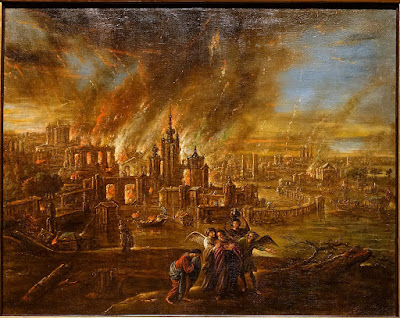Jesus came to his native place and taught the people in their synagogue.
They were astonished and said,
“Where did this man get such wisdom and mighty deeds?
Jesus always presents us with a choice. We can regard him according to the flesh, as the carpenter's son, the son of Mary, a normal man among men, whom we might rightfully question and compete with. Without faith Jesus seems to be just another man, and in this sense any wisdom or mighty deeds of his seem threatening to us. He is someone else on our level, or so we think, purporting to be better than us. If we take him to be merely human of course we will want to reject the idea that there is anything special about him for the sake of our pride.
Yet God never overwhelms our freedom in choosing how to respond. As Pascal said, "In faith there is enough light for those who want to believe and enough shadows to blind those who don't."
In order to make sense of Jesus we must start with faith. Only in the context of acknowledging who he is, both God and man, does the humility demanded of us make sense. Only when we realize that the Father in heaven is uniquely his Father do we realize that his wisdom and mighty deeds are not done in competition with us. When we have faith we are able to look beyond the superficial similarities to other men or other religious leaders. We are able to recognize excuses we make which are actually cop outs to avoid his claim on us. But this begins when we believe what he tells us about who he is.
When we refuse to start with faith Jesus will refuse to work many miracles among us. This is not done grudgingly, out of condemnation, or because in some way his power depends on us. It is done rather to safeguard us from further condemnation to which we would be liable.
"Not that because they did not believe He could not do His mighty works; but that He might not by doing them be condemning His fellow-citizens in their unbelief."
- Saint Jerome
The LORD may not overwhelm us with mighty deeds but he does constantly invite us to change and repent. He never gives up on us or abandons us. Even when our repentance doesn't seem particularly likely he persists. He is the hound of heaven who has scented us and won't stop until we are safely rescued.
Perhaps they will listen and turn back,
each from his evil way,
so that I may repent of the evil I have planned to inflict upon them
for their evil deeds.
May the LORD's efforts to chase us down not harden our hearts. The response that he desires is faith. Teach us, O LORD, who you are, and who we are in you.
But I pray to you, O LORD,
for the time of your favor, O God!
In your great kindness answer me
with your constant help.
Dan Schutte - These Alone Are Enough



















